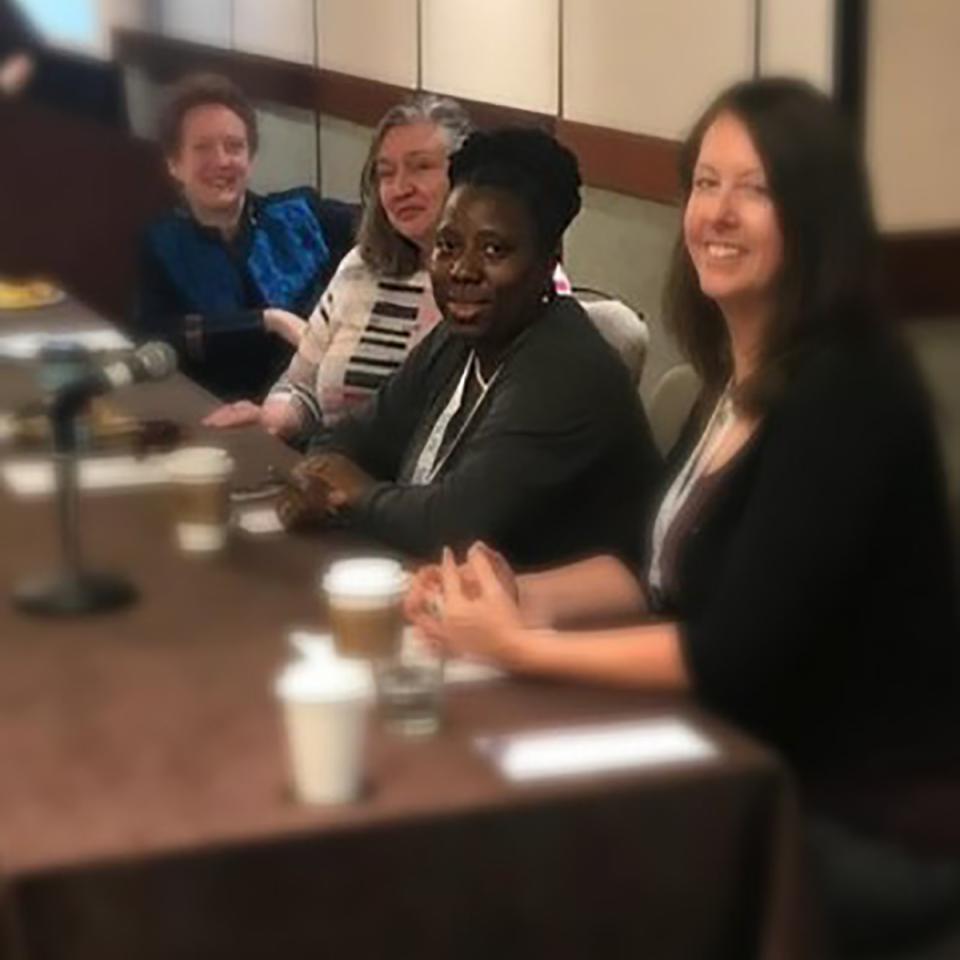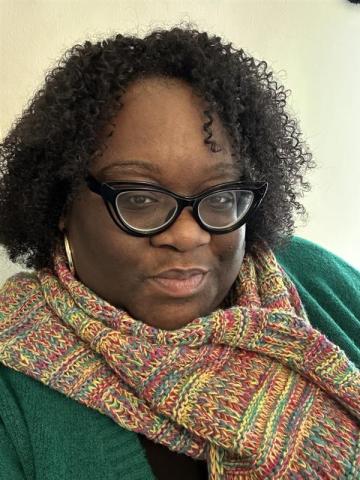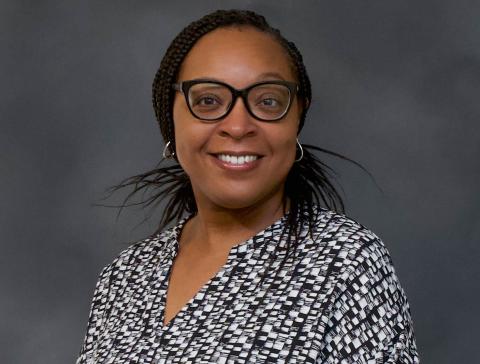
Food as medicine
Q&A with Director of Housing Services Lawanda Williams, LCSW-C on food, diabetes and homelessness
At this year’s National Health Care for the Homeless Conference, you presented on a panel titled Managing Diabetes and Chronic Disease through a Social Determinants Lens. What does that mean?
Social determinants of health are the areas of your life that impact your health outcomes before you reach your doctor’s office. Poverty, access to food and where you live are all examples. We know in Baltimore that the separation of two or three miles—like between Roland Park and Park Heights—can mean a 20-years difference in life expectancy.
Why are you interested in diabetes?
Two reasons. My mother had diabetes. Even though she had resources, helping her navigate through that was difficult. It made me think, how in the world can people manage this with nowhere to store their food, no place to cook, no access to needles?
I was also startled by the number of clients living with HIV who felt that their diabetes was the worse of the two. They’d say, “Now that my HIV is under control, it’s really diabetes that’s messing up my life!”
What barriers do people face in accessing healthy food?
We have a big problem with food deserts here in the city. Many people are getting their food from local corner stores because the alternative is a four or five mile cab ride away. Think about shopping at a store where the food is behind bulletproof glass. People staying in shelters have even fewer choices and no control over the food available.
What solutions stood out to you from your discussion at the conference?
One client mentioned outreach to churches, and that resonated with me. Baltimore is full of churches who give food to shelters and do street outreach. Connecting with churches to discuss heart-friendly foods or diabetes education would be a start.
I think there’s space to empower shelter systems, too. And we’ve started to do this—talking with emergency shelters and soup kitchens about the food they serve and empowering them to talk to donors directly about healthier options. It was nice to hear recommendations from the panel—and to come back to find out that some of that work is already happening!
View other topics and photos from the National Conference here.
More Recent News
We are thrilled to welcome Nikia Woodard, our new Director of Human Resources! With more than two decades of experience in the HR field, Nikia previously held leadership roles with the Maryland Transit Administration, Unified Women’s Healthcare and a behavioral health residential treatment facility for youth in Baltimore. Most recently, she served as Director of Employee Experience & Organizational Development at Loyola University Maryland, implementing university-wide professional development programs and encouraging a culture of continuous learning. Read on to learn more about Nikia (and her favorite snack)…
After a year of serving as Practice Manager of West Baltimore, Alkema Jackson is moving into the new role of Director of Practice Operations, Community Sites! She joined Health Care for the Homeless in 2022 as the Client Access Project Coordinator, collaborating across departments to help more people connect to agency services, and in 2023, she received a Core Value Award for Hope. Read on to learn more about Alkema’s approach to this new position…
Meet Christana Greene, our new Director of Compliance! With more than five years in the compliance field—most recently as Senior Quality and Patient Safety Specialist at GBMC Healthcare—Chrissy brings frontline insight to the role. She began her career as a medical assistant, gaining firsthand experience in what it takes to keep care safe and operations running smoothly. In her new role, Chrissy is focused on building a compliance culture grounded in safety, integrity and accountability. Read on to learn more about Chrissy...
Baltimore gets dangerously cold, and too many of our neighbors are out there. Here are three simple things you can do to make a difference in someone’s life this winter.




